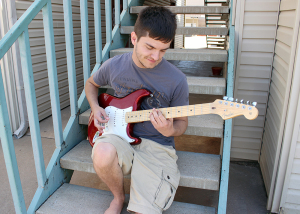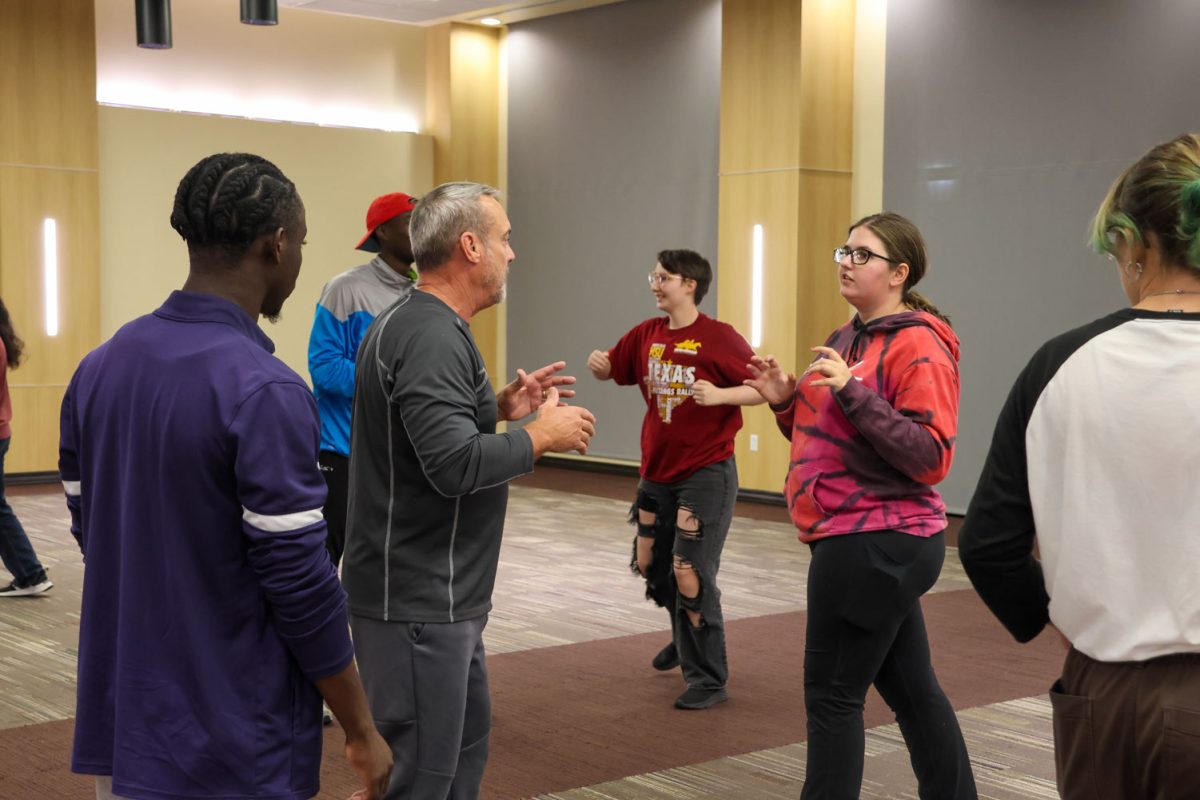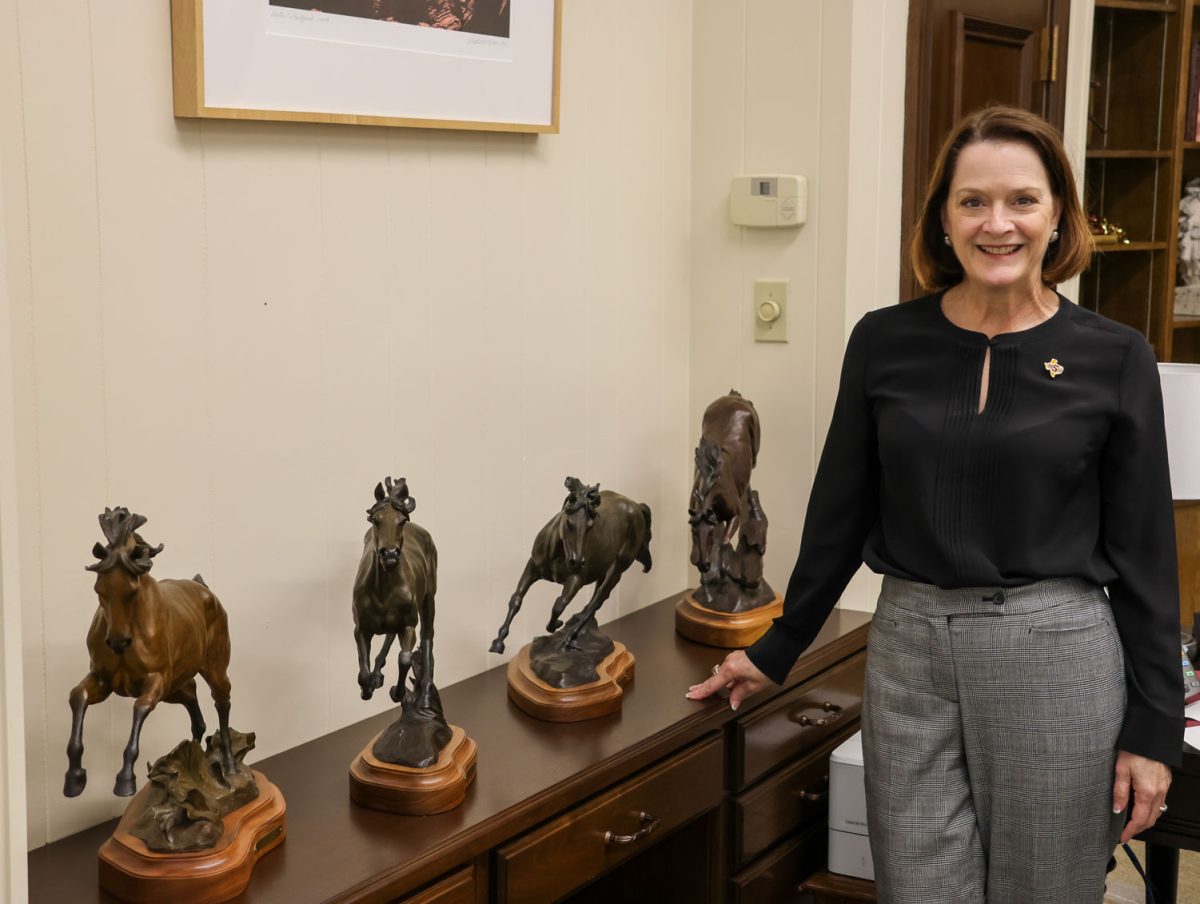
From kindergarten all the way to the bitter end of high school, Andrew Latour woke up, for the most part, whenever he felt like it. He was an all-star in gym class and valedictorian when he graduated high school at 15.
Andrew was home schooled.
Latour, now a junior in sociology, is part of a growing population of more than 300,000 home schooled students in Texas alone, according to the Texas Home School Coalition Association.
“In home schooling you could never fall behind, you could only move forward. This is why I was able to graduate high school when I was 15 years old in 2011,” Latour said.
Latour’s family joined Home Educators Around Texoma, an organization giving home schooled students a way to meet each other and for parents to network by exchanging teaching techniques.
“My mom was our main teacher because she was a stay at home mom. In most areas she was incredible at teaching,” Latour said. “Her best subject was English, which encouraged me to become an English major my first semester of college.”
Outside of the comfy household classroom and family time, home schooled students must find other ways to make friends and develop their social skills. Some families encourage this by attending church, clubs, sports, and home schooling conventions held each year.
“I didn’t really get out and meet people my age until I was 14. I made friends through other home schooling programs like HEAT, and was a part of a church youth group when I was younger,” Latour said.
Tommye Hutson, assistant professor of education, said her grandkids attended Clifton ISD outside of Waco, Texas, until they were in third grade and became home schooled.
“My grandkids were taken out of public school because they were threatened by teachers telling them that if they didn’t do well on their TAKS, that they would fail and the school would be shut down for good,” Hutson said.
The school was so small, Hutson explained, that enough students failing the state-mandated test could also lead to teachers losing their jobs. Hutson said the pressure put onto her grandkids led to her granddaughter developing stress ulcers.
“From my experience, most kids that are home schooled were usually due to religious reasons. But sometimes you find families that home school for reasons of purely wanting to give their child the best education they can,” Hutson said.
Home schooled students in Texas are still excluded from University Interscholastic League activities such as sports and theater, but Stephen Howsley, public relations manager for the Texas Home School Coalition Association, said his organization is working to pass the “Tim Tebow Bill” that would allow home schooled students to participate in UIL activities.
“We are going to try and have the bill passed through the House of Representatives April 23. This bill had already been filed in Nov. 20, 2014, and now we are pushing as hard as we can to get it through the house,” Howsley said.
According to the Department of Institutional Research, Assessment and Planning, 19 MSU students graduated high school from home.
“The current numbers only include the students that graduated high school as a home schooling student,” said Mark McClendon, director of institutional research. “There might be students on campus that only went to public school their senior of high school, so we do not have a completely accurate number.”
Adjusting from school days spent mostly alone or with his four other siblings, to stepping foot on a campus of more than 30,000 students, Latour found it difficult to cope with life at the bustling, and really, just populated, Texas Tech University where he spent one semester.
“It was overwhelming and exhausting to be on-campus at Tech. I underestimated how much walking I would have to do every day. I even had to take a bus to a class every other day,” Latour said.
Graduating high school at home in Vernon and being put on a university campus surrounded by students and teachers can be shocking. After deciding that Texas Tech wasn’t for him, Latour made the decision to attend a college that is smaller in size and closer to his home—Midwestern State University.
Mallory Roberson, undeclared freshman, said, “I have a few friends from church that graduated high school from being home schooled their entire life. They usually end up hating college campuses because of the culture shock.”
Roberson said she had noticed her home schooled friends that went on to attend universities usually ended up not liking the campus, found it difficult to adjust to their newfound independence, and had trouble being social. She said there were a few though that enjoyed the complete freedom and had an easier time making friends.
“It had a lot to do with how their parents raised them. That goes with any kid, public school or home schooled. But when parents home school their kids and then keep them isolated from the outside world, they can’t throw them towards a university and expect them to blend in. They will experience the ultimate culture shock, which is college,” Roberson said.
Coming from a classroom filled with family members and having your parents not only be your teacher, principal and school board, Roberson said her home schooled friends were surprised how different college professors taught their classes.
“There were families that took their children’s education seriously, and then there were families that didn’t. I knew of kids that their parents would leave them alone during testing and learning exercises. This would lead to the child cheating, or speeding through the lesson plans,” Roberson said.
Being held accountable for schoolwork by professors you hardly know, and being graded by someone that only knows you can be a huge shock in a student learns.
Bethany Ahles, business management senior, was home schooled her entire life until she decided to attend TCC after she finished high school.
“I decided to go to MSU because of how strong the Dillard College of Business is in educating and preparing their students for the business world. The small class sizes also attracted me especially since I was used to being alone in a classroom,” Ahles said.
But Ahles sees things differently than some other home schooled students. She said her home schooling experience aided her in coming to college.
“Home schooling helped me learn how to manage my time as well as motivate myself to do my work and learn everything I could,” Ahles said.
College freshman are given a new freedom when moving onto campus and being away from their parents for an entire year. Home schooled kids have spent their entire lives at home and spent more than enough quality time with their parents. Being away at school for the first time, and considerably being “on their own” could be a bigger deal to a home schooled student.
“Being away from my parents for the first time did not cause me to do anything crazy. I was lucky enough to find a strong group of friends. I was hired as a RA my second semester at MSU and have enjoyed helping other freshman girls transition into an independent college student,” Ahles said.
Home-schooled students are attracted to MSU not only for the smaller class size, but due to the professors being more personable than most universities. As the home schooled population continues to grow, MSU expects the enrollment of home schooled students to gradually increase.














